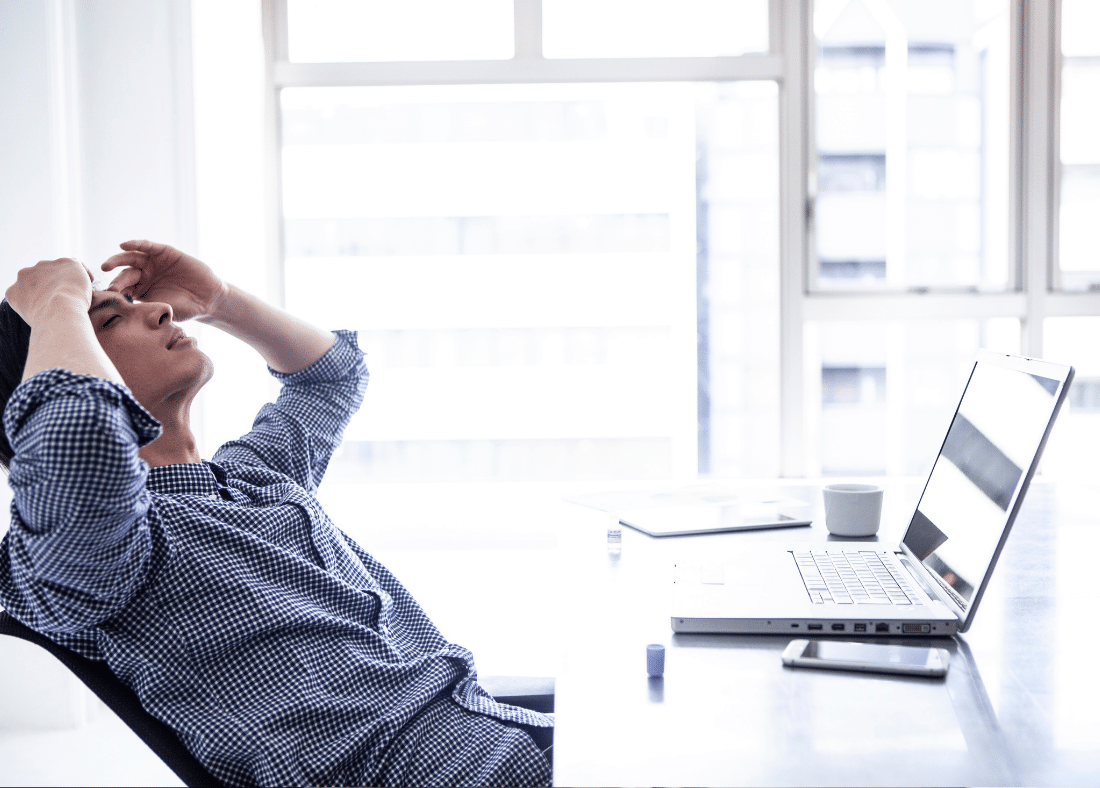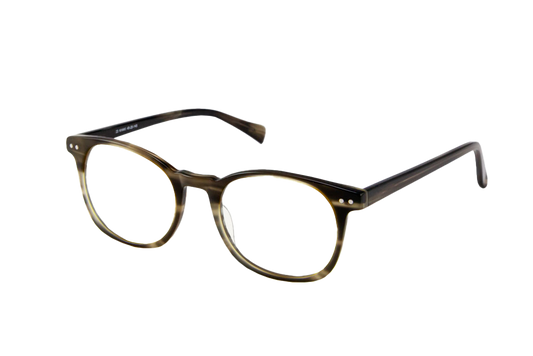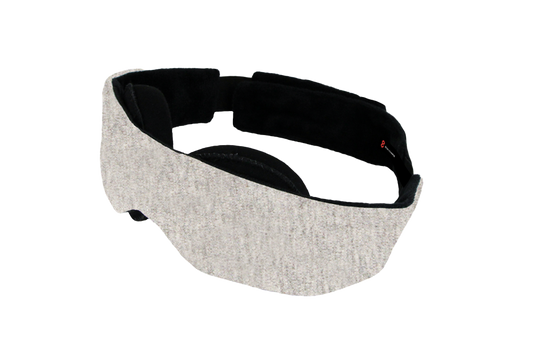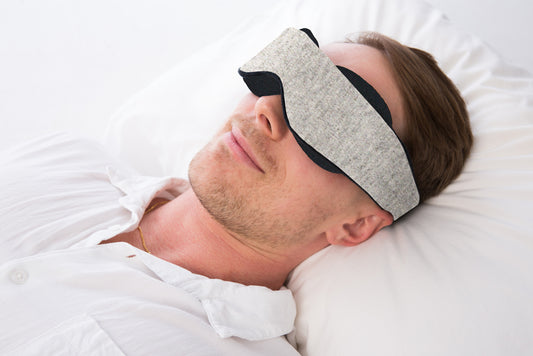Eye Fatigue & Heavy Eyes: Causes, Symptoms & Treatment
Andy Mant“Why are my eyes so tired?” “Why do my eyes feel heavy?”
If you’re reading this, you’ve probably asked yourself one or more of these questions.
Eye strain is an uncomfortable condition — it leaves you unable to be productive and makes it hard to enjoy certain activities, like watching a sunset or going to the movies with a loved one. However, if your eyes feel heavy and tired all the time, you’ll be happy to know that there is a remedy.
In order to find a solution for your tired eyes, we first need to learn why eyes get tired, symptoms of tired eyes, and the best ways to treat and prevent eye strain.
Why Do My Eyes Feel Tired?
Tired eyes, or eye strain, is actually a medical condition called asthenopia. Asthenopia is a blanket term for the many different symptoms that people experience when their eyes are fatigued, and when they experience other symptoms like headaches and light sensitivity.
Now, asthenopia is nothing new. Historically, the main causes were poor lighting, eye conditions such as myopia, or reading for long periods. However, in today’s connected world, digital devices are the biggest culprit in causing eye strain. In fact, the average American spends an equivalent of 34 years on screens. This much screen-time means our eyes remain intensely focused and exposed to bright light for a long time, leading to fatigue of the eyes.
Let's take a more in-depth look into the causes of tired eyes.
What Causes Eye Fatigue?
1. Underlying eye conditions
Eye strain can occasionally be a sign that you have an eye condition such as astigmatism or farsightedness. Uncorrected vision problems like astigmatism can cause a person to squint and strain their eyes in order to improve clarity. After a while, this straining can tire the muscles around the eyes, making your eyes feel heavy and tired all the time.
2. Poor sleep
Our body organs, including the eyes, are rejuvenated during sleep. When you get adequate sleep, the muscles around the eyes get a rest, the inner eye gets relief from direct light, waste products are removed, and the eye's protective film is replenished. When you don’t get enough sleep, none of these crucial processes happen and you end up with tired, dry, and irritated eyes.
3. Poor lighting
Light is the basis of vision. For perfect vision, the right amount has to be reflected from external objects into our eyes. Too little light and we have to squint to see; too much light and we can’t see anything. An example of poor lighting affecting the eyes is the need to squint when reading a book under a weak lamp.
4. Harsh environmental conditions
Unfavorable conditions such as dusty or smoky air can lead to irritation of the eyes. When irritated, eyes feel heavy and tired and won’t function optimally. You will have to strain them to see well, and thus your eyes will get tired.
5. Prolonged focus
The eyes have a natural impulse to dart around, looking at different things. When this is restricted, for example by reading a book or sitting at the computer for a long time, the eyes feel heavy and tired. This is also true for activities such as driving, that require you to stare in one direction for a long time.
Symptoms of Eye Fatigue
Dry eyes
Having dry eyes is one of the most prevalent symptoms of eye fatigue. You may find that your eyes get dry and tired after a long period of phone or computer use. This is because during screen time, the blinking rate goes down from the regular 20 times per minute, to as low as 5 times per minute. This causes the eye to be exposed to air for long, leading to evaporation of the watery protective film, and thereby leaving the eye dry.
Eye dryness can also be caused by being in very windy, hot or dry environments.
Watery eyes
Sometimes when the eyes are very dry, the tear glands become overactive and end up producing too many tears in a bid to restore moisture. When this happens, the eyes become watery.
Sensitivity to light
When your eyes are tired, you may find you become very averse to light, even light that isn’t very bright. This is because tired eyes process light differently than well-rested eyes. The inner part of the eye that processes light needs rest to heal and rejuvenate. When you have too much screen time or don’t sleep enough, those light-receptor cells become overstimulated and can’t regenerate effectively. This leads to light-sensitivity.
Twitching
Constantly straining the muscles around the eye may cause them to start twitching. While the twitching is generally harmless, the eye fatigue is not.
Headache
Eye fatigue can cause a headache and make your eyes always tired due to lack of rest. They typically appear if you’ve been focusing on one thing for a prolonged period of time. This includes reading, watching TV, or looking at your phone for a long time. Eye strain headaches are remedied by resting the eyes.
Blurred vision
Overstimulation can make the eyes feel heavy and tired and result in blurry vision. One reason for this is that when you stare closely at something (such as a phone screen) for a long time, the eyes get used to blurring far away objects.
How to Relieve Tired & Heavy Eyes
Now that we’ve looked at the common causes of eye fatigue, you’ve probably found an answer to the question “Why do my eyes always feel tired?” Let’s now see what measures you can take to relieve those peepers.
Get enough sleep
This is one of the best ways to relieve eye strain. Getting a good night’s sleep allows new cell growth and nutrition of cells in the eye. Just make sure your sleeping area is quiet, dark, and free from electronic devices that can interrupt your sleep. If you’re struggling to fall or stay asleep, consider investing in a sleep mask.
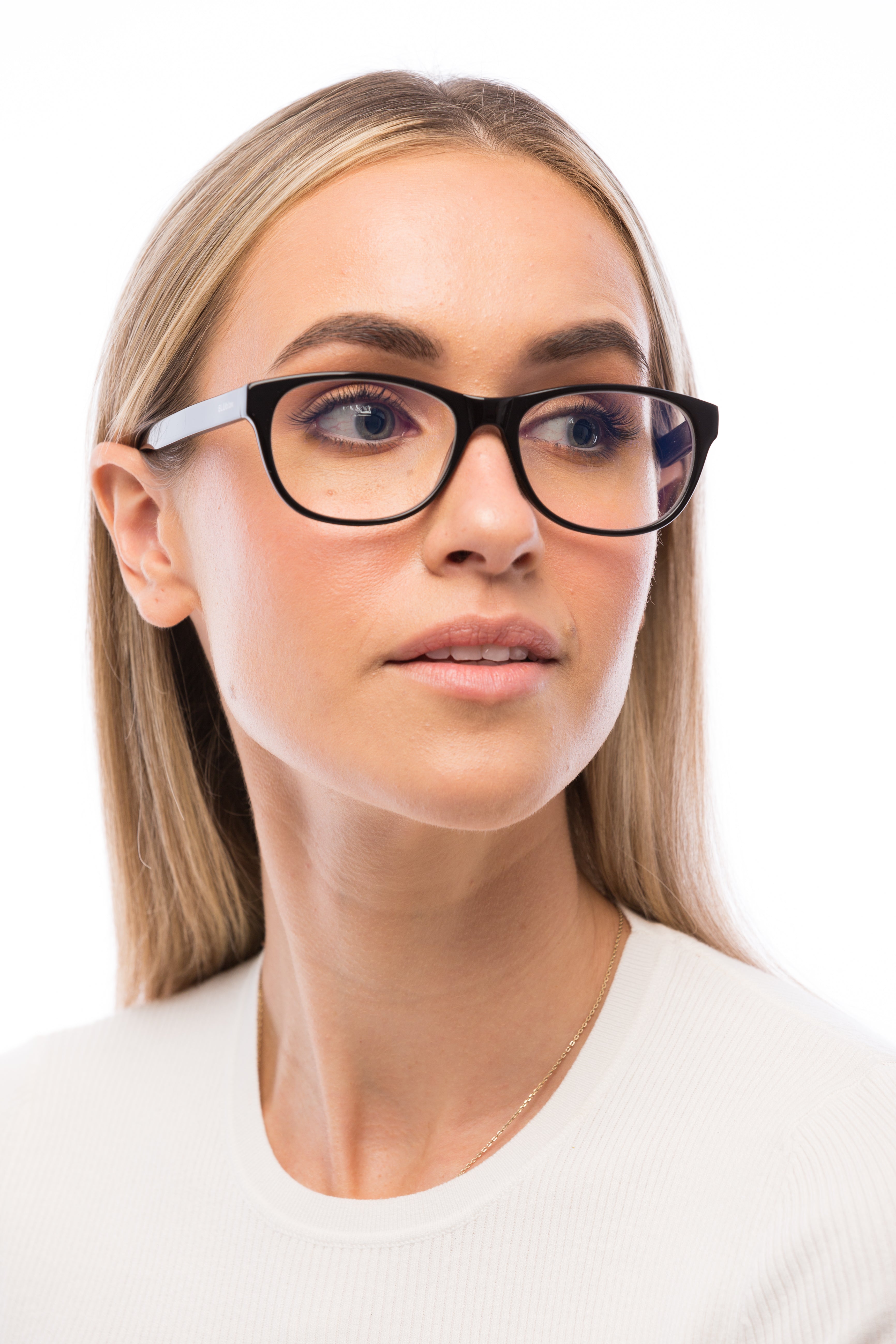
Take regular breaks
When you’re using screened devices during work or downtime, make sure to take breaks regularly. This allows your eyes to rest from the intense focus that is needed to use such devices. Try the 20-20-20 rule: after 20 minutes of looking at a screen, look at something 20 feet away for 20 seconds. This gives your eyes the break they need.
Create a comfortable workspace
Set up your workstation in such a way that you won’t need to strain your eyes to see clearly. Follow these tips to create an eye-friendly workstation:
- Place your computer or laptop screen 20-25 inches away from you.
- Position the screen to be 4 to 5 inches below your eye level. This positioning reduces glare by ensuring your eyes look slightly downward when viewing your screen. Another benefit of doing this is that more of your eye will remain covered by the eyelids, which helps to reduce evaporation of the tear film, and therefore prevent dry eyes.
- Adjust your device’s screen settings, such as brightness, contrast, and backlight, to a comfortable level.
Limit screen time
Outside of work and study, try to limit your screen time to 2 or 3 hours a day. It may be difficult to do so but just remind yourself, “too much screen time makes my eyes feel tired” or “too much phone time gives me a headache.” Instead of mindless scrolling, opt for outdoor activities that will provide your eyes the benefits of natural light.
Use specialized eyeglasses
In order to protect your eyes while you're in front of the screen, you can use special glasses for computer use that block blue light and reduce glare from the screen.

Protect Your Eyes with BON CHARGE
Screens are a major part of our lives, and it’s important to protect our eyes with enough rest and limited blue light exposure. BON CHARGE stocks top of the line computer glasses and sleep glasses to make your screen use more comfortable. Browse our collection to find your perfect match today.
This content is for informational purposes only and does not constitute medical advice. Products mentioned are not intended to diagnose, treat, cure, or prevent any medical condition. Individual experiences may vary.

